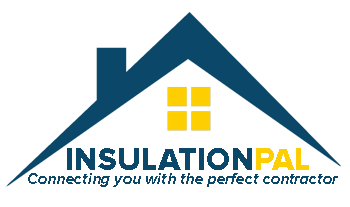Foam Board Insulation: Definition and What it is
Rigid foam panels used for continuous insulation applications in walls, roofs, and foundations.
What is Foam Board Insulation?
Foam board insulation consists of rigid panels made from polystyrene, polyisocyanurate, or polyurethane. These lightweight, durable boards provide continuous insulation without thermal bridging and are used in foundations, exterior walls, roofs, and interior basement applications.
Rigid foam boards offer high R-values per inch in a compact, easy-to-handle format. Available in 4x8 sheets and various thicknesses, they install quickly with adhesive, mechanical fasteners, or both. Foam board creates a continuous insulation layer that prevents thermal bridging—the heat loss through studs and framing that reduces the effectiveness of cavity insulation. Different foam types offer varying R-values, moisture resistance, and costs.
Types of Foam Board Insulation
- Expanded Polystyrene (EPS): R-3.6 to R-4.2 per inch, affordable, good moisture resistance, white beadboard appearance
- Extruded Polystyrene (XPS): R-5.0 per inch, excellent moisture resistance, pink or blue boards
- Polyisocyanurate (Polyiso): R-5.6 to R-6.5 per inch, highest R-value, foil-faced, best for above-grade applications
- Graphite Polystyrene (GPS): R-4.7 to R-5.0 per inch, enhanced EPS with graphite particles for better performance
Choosing the Right Foam Board
EPS offers the best value for basement walls and below-grade applications. XPS provides excellent moisture resistance for foundations and under concrete slabs. Polyiso delivers the highest R-value for exterior wall sheathing and roofing but performs poorly in cold temperatures—avoid below-grade. Always seal seams with appropriate tape to maintain air barrier continuity. Consider fire rating requirements—foam board typically needs a thermal barrier (drywall) for interior applications. For exterior continuous insulation, protect with appropriate cladding and weather barriers.
Benefits of Foam Board Insulation
- High R-value in minimal thickness
- Eliminates thermal bridging with continuous coverage
- Lightweight and easy to handle
- Won't absorb water or lose R-value when wet (EPS and XPS)
- Long-lasting performance without settling or degradation
- Versatile for walls, roofs, and foundations
Foam Board Insulation Cost
Foam board costs vary by type, with EPS being most economical and polyiso most expensive.
- Material type (EPS: $0.35-$0.60/sq ft; XPS: $0.50-$0.90/sq ft; Polyiso: $0.60-$1.20/sq ft)
- Thickness and target R-value
- Facing and specialty features
- Project size and scope
- Installation labor (adhesive, mechanical fasteners, or both)
- Sealing and taping requirements
How InsulationPal Can Help You
InsulationPal connects you with licensed, experienced insulation contractors. Compare multiple quotes to get the best value for your project.
Free Quotes: Get multiple competitive quotes from pre-screened contractors.
Expert Matching: We match you with pros experienced in foam board insulation.
Quality Assurance: Licensed, insured, and verified contractors.
Related Services and Resources
Explore all services we offer
Essential materials, benefits, and insulation types for garages
Continuous insulation with foam board options
Expert guides and tips on insulation
